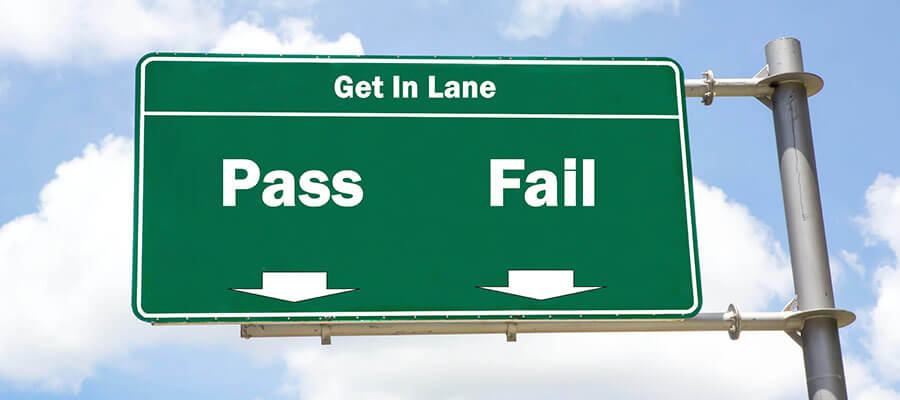The short answer is no. However, there are many reason that make some learners and driving instructors believe a quota does exist for driving tests.
Below are some of the reasons why some people think there is a quota for driving tests.

1. The pass rates for most test centres only vary by 1-5% each year and the national pass rate has always remained around 40-45% each year.
Some past examiners have spoken out in the past, claiming the test centre manager has spoken to them about ‘too many males or too many females are passing’. Some outsiders would see this as a cause for concern, but it’s a test centre manager’s job to monitor the examiner’s performance.
Some examiners – without realising – may be emotionally marking and not rationally marking. This means they may feel more comfortable with female or prefer the general driving style of males. Without realising, this may affect how they mark pupils’ tests.
The test centre manager is just monitoring the consistency so everyone gets a fair test. We are all human and sometimes good and bad experiences affect how we perform and, in some instances, how a test is marked.
Overall, it shouldn’t matter if you are male, female, what ethnicity you are etc. The test should be marked fairly, and if you feel you haven’t received a fair test, you can appeal your decision to the DVSA.
2. Some test centres are easier than others
On paper, this is true. Wanstead in London has one of the lowest pass rates which fluctuates around 30-35%. While somewhere like Hemel Hempstead has a 45-50% pass rate. Many learners this it’s the examiners that are the problem, when in fact it’s often the complexity of the area. Many areas in the highlands of Scotland and Wales have pass rates of 70-80%, and that’s because the traffic is lower and the junctions are less complicated.
3. The best time to take your test is at the beginning of the month
This is just a complete myth. Some instructors would say if you take your driving test at the end of the month, the quota for passes may have been met. Therefore, taking it at the beginning of the month is a safer bet. There was once a book, written in the 1980s, which potentially could have started these rumours.
3. Some examiners prefer certain driving instructors
Officially the answer should be no. However, if you are learning with a driving instructor who consistently brings down a pupils of a poor standard to the driving test centre, then the examiners do become unhappy with that particular instructor. This shouldn’t affect the next person’s test with that instructor, though certain examiners are not going to be looking forward to your drive when the last, let’s say 10, pupils have been below the average standard.
If your driving instructor has a high standard for the driving test, the examiner is going to be expecting a good drive. As a learner, you should want to learn with the latter, If you sense your instructor has low or poor standards in general, it may be worth getting a second opinion. Many learners come to us for an assessment driving lesson. Last year, we received a record high of assessment lesson booking for driving lessons in Ilford which is one of the surrounding areas for the lowest pass rates.
Summary
Overall, there isn’t a quota, but if you want the best possible chance of passing first time, then the two main contributing factors are:
- Your determination and commitment to your lessons
- Your instructors ability, teaching standard and reputation at your local driving test centre
In order to get both factors right, we would obviously say to try driveJohnson’s. If you don’t choose us, be sure to do your homework and ask about your instructor’s credentials. If in any doubt, call a few more companies until you feel confident you’re getting your money’s worth and the service you deserve.
Enquire about learning to drive






